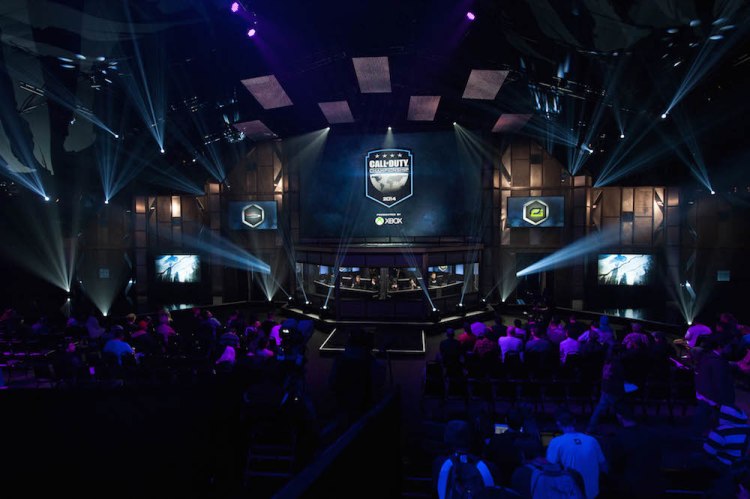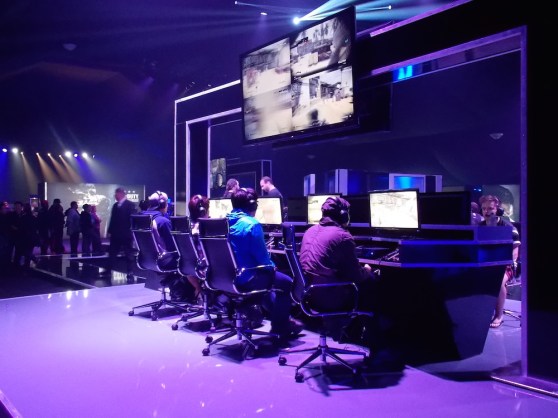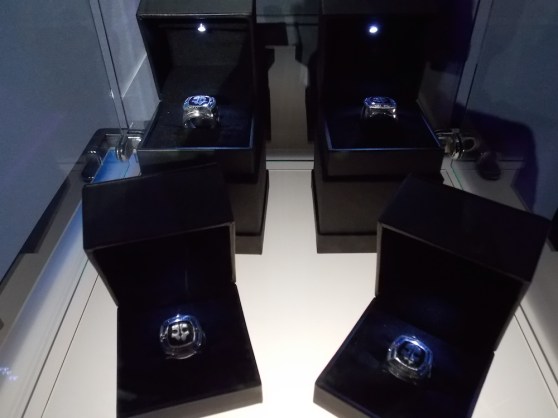During the day, they’re soldiers, students, and workers. But at night, they throw on their headsets, sync their controllers, and prepare for digital warfare, hoping that, some day, they can turn their love for Call of Duty into a career.
Not every team that participated in this year’s Call of Duty Championship consists of full-time professionals. For these players, competing is a hobby, but it’s one they take very seriously. The annual Los Angeles-based tournament — a joint effort between Microsoft, Call of Duty: Ghosts publisher Activision, and e-sports organization Major League Gaming — awards the top eight teams with cash from its $1 million prize pool.
A few players, like the young men from Complexity (this year’s winner) or from the popular French team Vitality Rises, already do this for a living. They’re big enough to attract sponsorships and passionate fanbases. Some even live in “gaming houses” with their teammates, coaches, and managers, practicing every day while also trying to grow their own personal brands with livestreams and YouTube videos.
Others aren’t as lucky. They squeeze in as much time as they can for practice when they’re not going to school or working. Some live in countries where the competitive Call of Duty scene is small or nonexistent. But they do it anyway, either for fun or for improving their chances of going big. GamesBeat spoke with a handful of lesser-known teams from different parts of the globe to find out who they are and why they still compete when bigger teams clearly have more time and resources to prepare.
A look at e-sports from around the world
South Korea has long been a hotbed for the Starcraft series. The best players become celebrities, and thousands fill stadiums to watch games in person. But for those competing in Call of Duty, it’s a different story.
“It’s not very popular there. I can’t imagine more than 10 people would be watching this in South Korea,” said Young Ju “Infi Benjinuri” Park via translator.
Park and his teammates make up the South Korean team NSP. In addition to fighting the jet lag from their long flight (they arrived one day before the tournament began), NSP had little time to get over another obstacle: playing on Xbox One. Since Microsoft’s latest console isn’t available in South Korea until this September, NSP only had their Xbox 360s to work with.
Know your e-sports slang
- Scrims: scrimmages or practice matches
- LANs: tournaments where consoles connect to each other and not through the Web
“At any given time, less than 50 people are connected to [Call of Duty: Ghosts] online,” Park said. “We have a hard time finding opponents to just play and practice our game. There’s another team here from Singapore — we try to connect with them every once in a while. Every two weeks or so.”
The Singaporean team, Echelon, were in a similar situation. The Xbox One isn’t available there either, and the only reason Joshua “Blaqkrow” Lim got one was because he bought it through an import shop.
“It’s tough there for competitive gaming, especially when you factor in the lag when you face other opponents [online] in America, the EU, and Australia,” Lim said. “The latency is really, really bad.”
Michael “elts47” Teoh, who joined Echelon only days before the tournament began because another member had to drop out at the last minute, also complained about the lack of high-level competition in his country.
“[The e-sports community in Singapore is] extremely small,” Teoh said. “That’s the sad part because we believe that we have the potential to grow. Not only in Call of Duty, but especially in other games like Dota 2, League of Legends, and Halo. We actually were competitive Halo players and made the transition to Call of Duty. So we believe there is a lot of untapped potential in Singapore. It’s just that there’s no formalized e-sport organizer there.”
Things look a bit better for teams below the equator. Australia has its own equivalent to MLG — the Australian Cyber League. The ACL hosts LAN tournaments in Brisbane, Sydney, and Melbourne every year, and the best two teams from the Australia and New Zealand regional qualifier earn a spot at the world championship. This year, that honor went to Immunity and Trident T1 Dotters.
“E-sports isn’t as big in Australia as it is in America or Europe or Asia,” said Issei “Iskatuu” Chimura, Trident’s captain. “We’re already in the top 16, but if one of our teams comes in the top eight, it’s just gonna blow up. We’ve just been preparing like every other team does: scrimming and practicing daily. It’s a lot of dedication involved. A lot of going over things, finessing things.”



